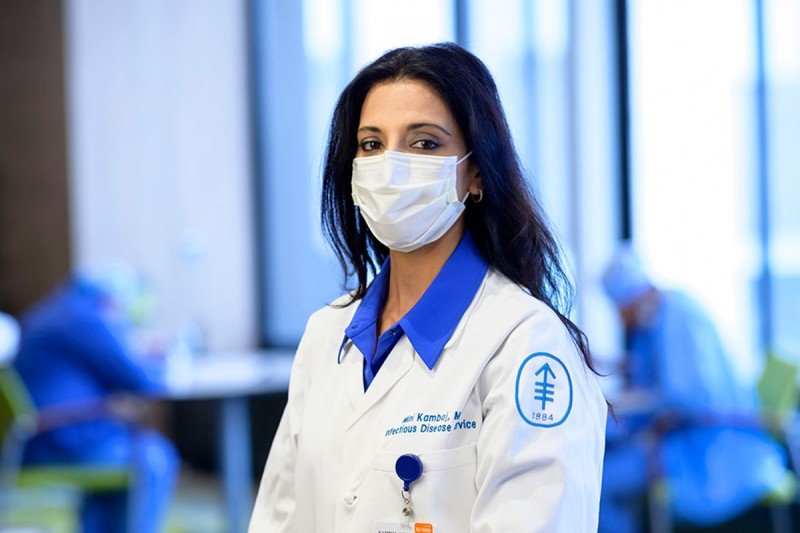
Mini Kamboj, MSK's Chief Medical Epidemiologist
There have been thousands of confirmed or suspected cases of mpox (formerly monkeypox) worldwide, including in the U.S. The virus is typically found only in central and west Africa.
Mini Kamboj, Chief Medical Epidemiologist at Memorial Sloan Kettering (MSK), answers questions you may have about mpox.
What is mpox, and how is it spread?
Mpox is a rare disease caused by a virus from the same family as smallpox, according to the CDC. It is spread through body fluids, skin, and respiratory droplets. The virus typically causes fever, chills, rash, and lesions on the face or genitals. Symptoms of mpox often appear 6 to 13 days after a person is infected, and can last 2 to 4 weeks.
How severe can mpox be?
While mpox is potentially life-threatening, most people experience a mild case and do not require hospitalization.
How is the current outbreak different?
According to infectious disease experts, this is the largest mpox outbreak in the U.S. and Europe.
Cases are mainly — but not exclusively — being confirmed among men who self-identify as having sex with men. It is important to understand that no existing evidence suggests that mpox is a sexually transmitted disease. The infection spreads from person to person mainly through contact with infected skin lesions. This can happen with any type of close physical or intimate contact.
Keep in mind anyone, regardless of sexual orientation, can spread and contract mpox. It is important not to stereotype gay and bisexual men because this can introduce barriers to care and set back efforts to control the spread. It may make these men reluctant to seek care or tell their clinicians that they are part of social and sexual networks disproportionately affected by the current outbreak. “Stigmatizing groups of people because of a disease is never acceptable,” the WHO said in a statement. “It can be a barrier to ending an outbreak.”
What should I do if I suspect I may have mpox?
According to the CDC, people who may have symptoms of mpox (or had close contact with someone with symptoms) should monitor themselves for a rash or lesions on their genitals or face, and contact their health care provider.
How is the virus treated?
Vaccines against smallpox are effective in preventing mpox and some antiviral drugs have been developed.
The New York City Department of Health (DOH) opened a temporary mpox vaccination clinic in New York City, where eligible New Yorkers who may have been exposed to the virus can receive the JYNNEOS vaccine. This vaccine has been approved by the FDA for anyone 18 years or older who has been exposed to mpox, and it may reduce the risk of infection, as well as reduce symptoms for those who do get mpox. The vaccine is administered in 2 doses, 4 weeks apart.
- Clinic details: Chelsea Sexual Health Clinic (303 Ninth Avenue). Closed Wednesdays and Saturdays. Open every other day, 11 a.m. to 7 p.m.
- Eligibility requirements: All gay, bisexual, and other men who have sex with men (cisgender or transgender) ages 18 and older who have had multiple or anonymous sex partners in the last 14 days.
- Appointment information: To schedule an appointment, click here. Appointments are strongly recommended. Some walk-ins will be accepted.
For additional information, please visit the websites listed below.

